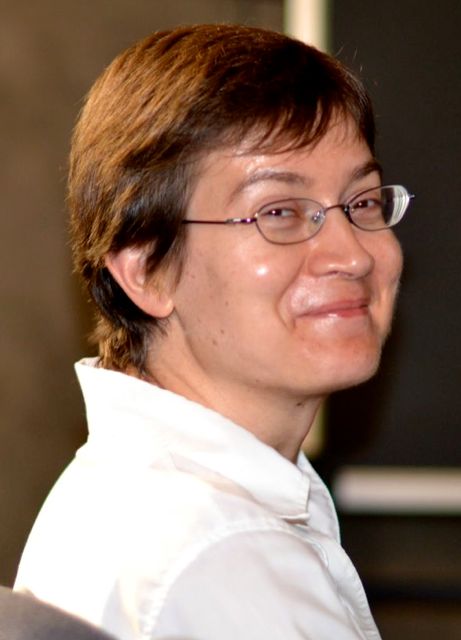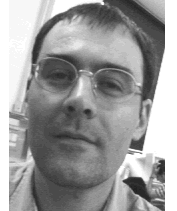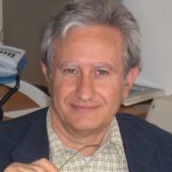Studying at the University of Verona
Here you can find information on the organisational aspects of the Programme, lecture timetables, learning activities and useful contact details for your time at the University, from enrolment to graduation.
Academic calendar
The academic calendar shows the deadlines and scheduled events that are relevant to students, teaching and technical-administrative staff of the University. Public holidays and University closures are also indicated. The academic year normally begins on 1 October each year and ends on 30 September of the following year.
Course calendar
The Academic Calendar sets out the degree programme lecture and exam timetables, as well as the relevant university closure dates..
| Period | From | To |
|---|---|---|
| Periodo zero | Sep 19, 2005 | Oct 10, 2005 |
| 1° Q - 2° anno e successivi | Oct 3, 2005 | Dec 2, 2005 |
| 1° Q - 1° Anno | Oct 17, 2005 | Dec 2, 2005 |
| 2° Q | Jan 8, 2006 | Mar 9, 2006 |
| 3° Q | Apr 3, 2006 | Jun 9, 2006 |
| Session | From | To |
|---|---|---|
| Exam period 0 | Oct 17, 2005 | Oct 21, 2005 |
| Exam Session I | Dec 12, 2005 | Dec 23, 2005 |
| Exam Session II | Mar 20, 2006 | Mar 31, 2006 |
| Summer term | Jun 19, 2006 | Jul 28, 2006 |
| Autumn term | Sep 4, 2006 | Sep 29, 2006 |
| Session | From | To |
|---|---|---|
| Extra term | Dec 14, 2005 | Dec 14, 2005 |
| Winter term | Mar 15, 2006 | Mar 15, 2006 |
| Summer term | Jul 19, 2006 | Jul 19, 2006 |
| Autumn term | Sep 13, 2006 | Sep 13, 2006 |
| Period | From | To |
|---|---|---|
| All Saints Day Holiday | Nov 1, 2005 | Nov 1, 2005 |
| Immaculate Conception | Dec 8, 2005 | Dec 8, 2005 |
| Christmas holidays | Dec 23, 2005 | Jan 7, 2006 |
| Easter holidays | Apr 13, 2006 | Apr 19, 2006 |
| Liberation Day | Apr 25, 2006 | Apr 25, 2006 |
| Labour Day holiday | May 1, 2006 | May 1, 2006 |
| Saint's Day Holiday | May 21, 2006 | May 21, 2006 |
| Day of the Republic | Jun 2, 2006 | Jun 2, 2006 |
| Summer holidays | Jul 31, 2006 | Aug 31, 2006 |
Exam calendar
Exam dates and rounds are managed by the relevant Science and Engineering Teaching and Student Services Unit.
To view all the exam sessions available, please use the Exam dashboard on ESSE3.
If you forgot your login details or have problems logging in, please contact the relevant IT HelpDesk, or check the login details recovery web page.
Academic staff
 nome.cognome[at]uniud.it
nome.cognome[at]uniud.it
 gino.mariotto@univr.it
gino.mariotto@univr.it
 angelo.pica@univr.it
angelo.pica@univr.it
Study Plan
The Study Plan includes all modules, teaching and learning activities that each student will need to undertake during their time at the University.
Please select your Study Plan based on your enrollment year.
4° Year activated in the A.Y. 2008/2009
| Modules | Credits | TAF | SSD |
|---|
5° Year activated in the A.Y. 2009/2010
| Modules | Credits | TAF | SSD |
|---|
| Modules | Credits | TAF | SSD |
|---|
| Modules | Credits | TAF | SSD |
|---|
| Modules | Credits | TAF | SSD |
|---|
| Modules | Credits | TAF | SSD |
|---|
Legend | Type of training activity (TTA)
TAF (Type of Educational Activity) All courses and activities are classified into different types of educational activities, indicated by a letter.
Artificial Intelligence (2008/2009)
Teaching code
4S00075
Teacher
Credits
5
Also offered in courses:
- Artificial Intelligence of the course Bachelor's degree in Bioinformatics (until 2008-2009)
Language
Italian
Scientific Disciplinary Sector (SSD)
INF/01 - INFORMATICS
Period
1° Q dal Oct 2, 2008 al Dec 19, 2008.
Location
VERONA
Learning outcomes
The class, taught in English, presents the main techniques for problem solving, based on the central paradigm of symbolic representation. The objective is to provide the students with the ability to design, apply and evaluate algorithms for difficult problems, meaning that their mechanical solution captures aspects of artificial intelligence, or, at least, computational rationality, as in constraint problem solving, theorem proving, planning, game playing.
Program
Methods of artificial intelligence: problem solving as search in a state space; un-informed search procedures; informed search procedures and heuristic search. Constraint problem solving. Adversarial problems: game playing (optional). Knowledge representation: use of propositional logic and first-order logic; clause normal form; equality. Automated reasoning in propositional logic: algorithms for satisfiability (SAT). Automated reasoning in first-order logic: forward and backward reasoning; resolution; rewriting (optional). Planning.
| Author | Title | Publishing house | Year | ISBN | Notes |
|---|---|---|---|---|---|
| Elaine Rich, Kevin Knight | Artificial Intelligence (Edizione 2) | McGraw Hill | 1991 | 0070522634 | Testo supplementare |
| Stuart Russell, Peter Norvig | Artificial Intelligence: A Modern Approach (Edizione 2) | Prentice Hall | 2003 | 0137903952 | Testo adottato |
| David Poole, Alan Mackworth, Randy Goebel | Computational Intelligence -- A logical approach (Edizione 1) | Oxford University Press | 1998 | 0195102703 | Testo supplementare |
| Klaus Truemper | Design of Logic-based Intelligent Systems (Edizione 1) | John Wiley and Sons | 2004 | 0471484032 | Testo supplementare |
| Judea Pearl | Heuristics: Intelligent search strategies for computer problem solving (Edizione 1) | Addison Wesley | 1985 | 0-201-0559 | Testo supplementare |
Examination Methods
Partial-tests mode:
it applies only to the first exam session after the end of the class, that is to the December session, since the class is offered in the Fall. The exam consists of a written test (C) and an individual programming project (P) to be developed at home or in the lab during the term; the final grade is given by: 50% C + 50% P; after the December session, partial tests have no value.
Single-test mode:
the exam consists of a single written test (E), whose difficulty is such to match that of C + P, and whose grade alone determines the final grade. This mode applies to all sessions.
Notes: written test C (partial test) is administered on the same date, time and place as test E of the December session (of course, contents and duration of C and E will be different).
Registration: for each session, the date of the exam is the date of the written test E, and it is sufficient to register for that date. All grades will be registered. Students dissatisfied with their performance may withdrawby not handing-in either E or C.
Rules: it is strictly forbidden to copy, exchange or share code or keys to the questions. All coursework showing signs of cheating will receive grade 0 with no distinction between those who copy and those who let copy.
Type D and Type F activities
Modules not yet included
Career prospects
Module/Programme news
News for students
There you will find information, resources and services useful during your time at the University (Student’s exam record, your study plan on ESSE3, Distance Learning courses, university email account, office forms, administrative procedures, etc.). You can log into MyUnivr with your GIA login details: only in this way will you be able to receive notification of all the notices from your teachers and your secretariat via email and soon also via the Univr app.

 +39 045 802 7980
+39 045 802 7980

















